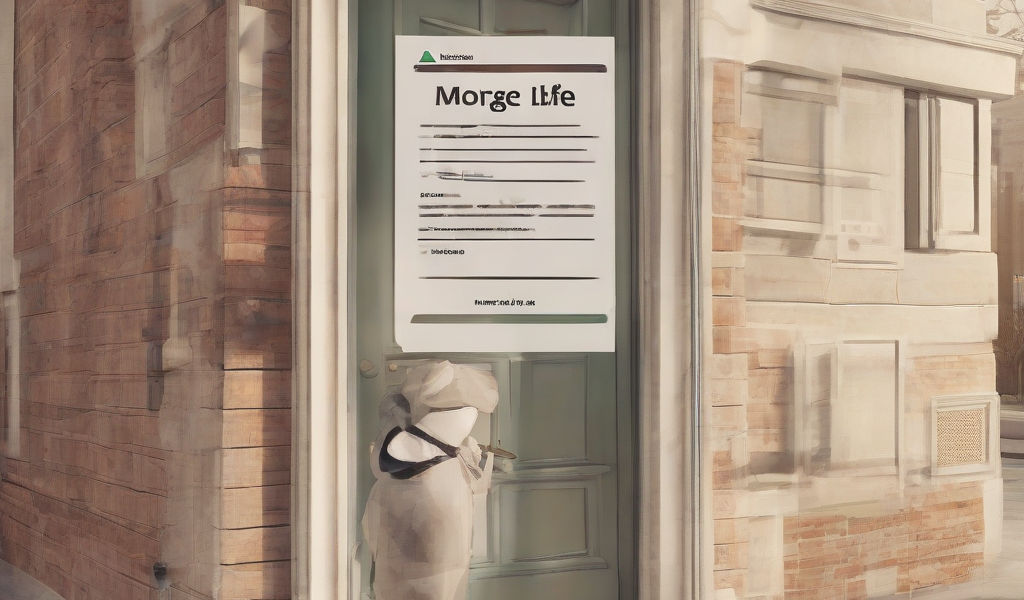Mortgage Insurance vs. Life Insurance: A Comprehensive Comparison
Understanding the differences between mortgage insurance and life insurance is crucial for responsible homeownership and financial planning. While both involve insurance and potentially protecting your family, their purposes, coverage, and beneficiaries are vastly different. This comprehensive guide will clarify the distinctions and help you determine which, if either, is right for your circumstances.
Mortgage Insurance: Protecting the Lender
Mortgage insurance, often called Private Mortgage Insurance (PMI) or Mortgage Default Insurance (MDI), primarily protects the lender, not the homeowner. It’s designed to mitigate the lender’s risk in case the borrower defaults on their mortgage payments.
- Purpose: To reimburse the lender for losses if the borrower fails to repay the mortgage.
- Who it protects: The lender (bank or mortgage company).
- Triggering event: Borrower defaulting on mortgage payments.
- Coverage: Covers a portion or all of the outstanding mortgage loan balance.
- Premiums: Typically paid monthly as part of the mortgage payment.
- Eligibility: Usually required when the down payment is less than 20% of the home’s purchase price.
- Cancellation: Can be canceled once the borrower’s equity reaches 20% of the home’s value (often through paying down the loan or appreciation).
- Beneficiary: The lender.
Types of Mortgage Insurance
- Private Mortgage Insurance (PMI): The most common type, offered by private companies.
- Federal Housing Administration (FHA) Mortgage Insurance: Required for FHA-insured loans, protecting the FHA against losses.
- Veterans Affairs (VA) Funding Fee: While not technically insurance, it’s a fee paid by VA-backed loan borrowers, protecting the VA.
Understanding PMI Costs
PMI premiums are typically expressed as a percentage of the loan amount and can significantly add to the overall cost of the mortgage. The percentage varies based on factors such as credit score, down payment amount, and loan-to-value ratio (LTV).
Life Insurance: Protecting Your Loved Ones
Life insurance, on the other hand, protects the policyholder’s beneficiaries from financial hardship in the event of their death. It’s a crucial tool for estate planning and securing the financial future of dependents.
- Purpose: To provide financial security to beneficiaries after the policyholder’s death.
- Who it protects: The policyholder’s designated beneficiaries (spouse, children, other family members).
- Triggering event: The death of the insured individual.
- Coverage: Pays out a death benefit to the beneficiaries.
- Premiums: Paid periodically (monthly, annually, etc.) throughout the policy’s duration.
- Eligibility: Generally available to most individuals who meet health and underwriting requirements.
- Types: Term life insurance (coverage for a specific period), whole life insurance (permanent coverage), universal life insurance (flexible premiums and death benefits), variable life insurance (investment component).
- Beneficiary: The policyholder’s designated beneficiaries.
Choosing the Right Life Insurance Policy
Selecting the appropriate life insurance policy depends on various factors, including age, health, financial needs, and risk tolerance. Consult with a financial advisor to determine the best coverage for your individual circumstances.
How Life Insurance Can Help with a Mortgage
Life insurance can play a vital role in mitigating mortgage debt in the event of the primary borrower’s death. A life insurance policy with a death benefit equal to or greater than the outstanding mortgage balance can ensure that the mortgage is paid off, preventing foreclosure and protecting the family’s home.
Mortgage Insurance vs. Life Insurance: Key Differences Summarized
| Feature | Mortgage Insurance | Life Insurance |
|---|---|---|
| Purpose | Protect the lender | Protect beneficiaries |
| Who it protects | Lender | Beneficiaries |
| Triggering event | Mortgage default | Death of the insured |
| Coverage | Portion or all of the outstanding mortgage | Death benefit |
| Premiums | Monthly, part of mortgage payment | Periodic (monthly, annually, etc.) |
| Beneficiary | Lender | Designated beneficiaries |
When You Need Mortgage Insurance
Mortgage insurance is typically required when you make a down payment of less than 20% of the home’s purchase price. This is because a smaller down payment increases the lender’s risk. However, it’s important to note that even if you have a 20% down payment or more, you might still be required to pay for mortgage insurance in certain cases, such as if you have a low credit score.
When You Need Life Insurance
The need for life insurance is highly personal and depends on various factors such as your financial obligations, family structure, and overall financial goals. Consider life insurance if:
- You have dependents who rely on your income.
- You have outstanding debts, such as a mortgage, student loans, or credit card debt.
- You want to leave a legacy or provide financial support to your loved ones after your death.
- You want to cover funeral and burial expenses.
- You want to protect your business assets.
Integrating Mortgage and Life Insurance for Comprehensive Protection
While distinct, mortgage insurance and life insurance can work together to provide comprehensive financial protection for homeowners and their families. Life insurance can serve as a critical safety net, ensuring that mortgage payments are covered even after the death of a primary borrower. This prevents the difficult situation of losing a home due to the unforeseen death of a family member.
Many people mistakenly believe that mortgage insurance protects their family. It doesn’t. It only protects the lender. Therefore, a solid life insurance plan is crucial for financial security, especially when a significant debt like a mortgage is involved. The death benefit from life insurance can ensure a financially secure future for your loved ones even without your income.
Consulting a Financial Professional
Navigating the complexities of mortgage insurance and life insurance can be challenging. It’s always recommended to consult with a qualified financial advisor or insurance broker who can assess your individual circumstances and help you develop a comprehensive financial plan that includes appropriate coverage.
They can help you understand the intricacies of different policies, compare costs and benefits, and make informed decisions about the type and amount of insurance that best suits your needs. Don’t hesitate to seek professional guidance to ensure you have the right protection for your family and financial future.




